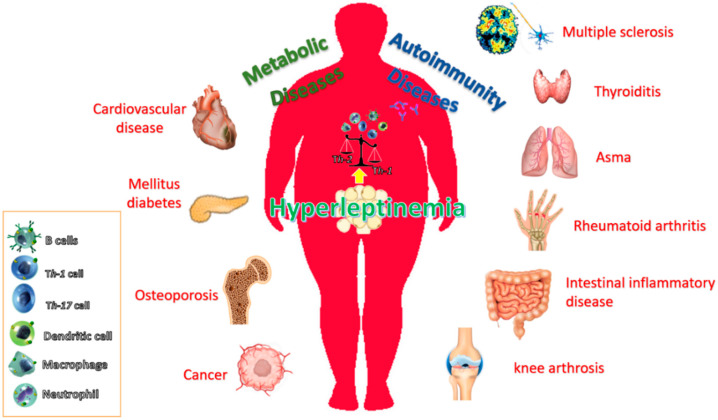Figure 1.
Leptin action contributes to chronic inflammation in obesity. Obesity is associated with increased leptin levels, which at the local or systemic level activate the cells of the innate and adaptive immune system. In this context, leptin can directly promote environmental conditions that in turn promote the loss of immune self-tolerance and priming immune cells for Th1 phenotype (proinflammatory). The elevated circulating leptin levels in obesity contribute to the low-grade inflammatory background, which makes obese individuals more susceptible to an increased risk of developing metabolic diseases such as cardiovascular diseases, T2D, as well as, degenerative disease including autoimmunity diseases (multiple sclerosis, thyroiditis, rheumatoid arthritis, intestinal inflammatory disease and knee arthrosis among others) and cancer.

